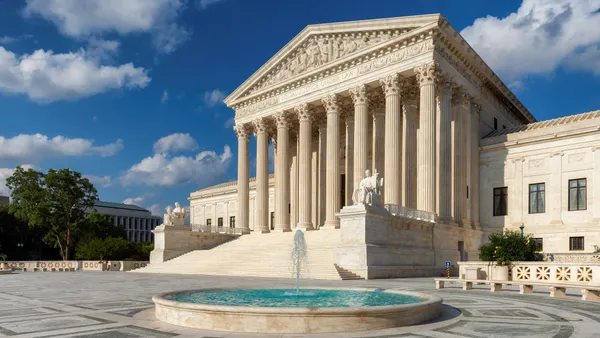Dive Brief:
- The Texas State Board of Education is revising its social studies curriculum, a process the state undertakes every 10 years, and residents including Texas Supreme Court Chief Justice Nathan Hecht recently voiced their opinions on proposed draft changes.
- Hecht specifically asked the board to put more emphasis on civics curriculum, which he said the legal community believes is lagging. He spoke of the need for more focus on teaching students how the justice system works and how the three branches of the U.S. government operate.
- The curriculum review in Texas follows on the heels of the 2021 passage of Senate Bill 3, which changed the Texas Education Code by delineating how topics like race and racism are approached by teachers in the classroom.
Dive Insight:
The impact of statewide curriculum decisions sometimes reach beyond their initial borders. The size of Texas, for instance, has in the past made it more economical for some publishers to adopt history content from that state in textbooks sold on a national level. Changes and technological shifts in the publishing industry have also made it easier to offer regionally customized textbooks and other curriculum resources.
Among proposals in this round of Texas social studies revisions is the addition of new courses ranging from Asian American Studies to American Indian/Native Studies. Other suggestions have included bringing world history lessons into play in earlier grades.
Still, others are pushing to reverse previous decisions, including a reference to Moses that implied the Biblical figure played an influential role in how the U.S. government’s founding documents were formed.
A particularly controversial proposal from this year’s process was a suggestion to refer to “slavery” in 2nd grade social studies instruction as “involuntary relocation.” It received unanimous pushback from the Texas State Board of Education.
Shannon Pugh, president of the National Council for the Social Studies and a former social studies teacher in the Dallas Independent School District, is heartened to see the inclusion of new courses in the Texas revision process. She said these provide more opportunities for students “to do a deep dive in a specific content area.”
She also lauded visibility in how the new proposed social studies standards are being discussed and reconsidered in Texas. That includes the pushback by the board in changing the word “slavery” in state standards.
“It’s important that the state should have that transparency of the process,” she said. “I don’t think all states do.”














